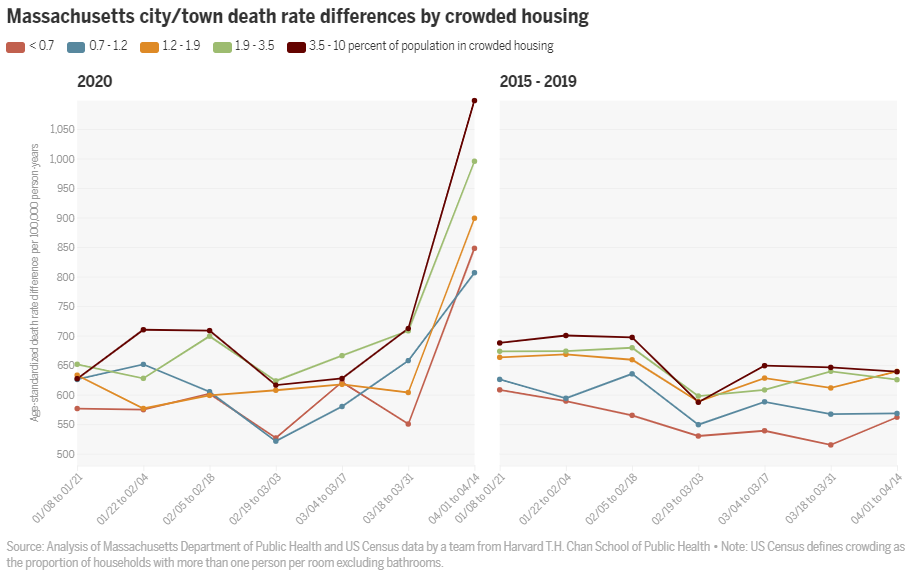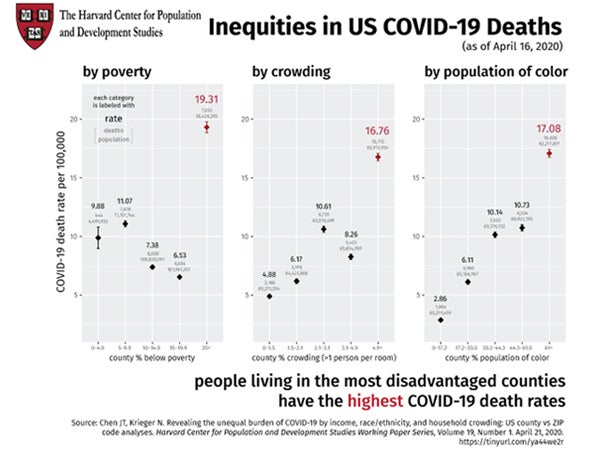A Harvard Pop Center working paper reveals the findings of an analysis of State-provided public health data by Harvard T. H. Chan School researchers Jarvis Chen, Pamela Waterman, and Nancy Krieger. The Boston Globe obtained the data and shared it with the researchers in order to generate this novel analysis. Read more in The Boston Globe, and in this Harvard T.H. Chan School of Public Health news item. Graphic…
Working paper shows people living in most disadvantaged U.S. counties have highest COVID-19 death rates
A Harvard Pop Center working paper by Jarvis Chen and Nancy Krieger provides critical public health monitoring data—missing until now—on the unequal economic and social burden of COVID-19 in the United States. The Harvard Center for Population and Development Studies (HCPDS) Working Paper Series provides a flexible and timely outlet for affiliates to publish their work in progress to the scholarly community in an open-access form.
New HCPDS Working Paper: Estimates of child malnutrition indicators for 543 Parliamentary Constituencies in India
Rockli Kim, SD, Yun Xu, MA, William Joe, PhD, and S (Subu) V Subramanian, PhD, have authored a novel working paper that presents robust estimates on five indicators of child malnutrition for each Parliamentary Constituency (PC) in India in 2016.
Later pension, poorer health? Evidence from the UK
A Harvard Pop Center working paper by faculty member Mauricio Avendano and his colleagues reveals that increasing the age at which women working in routine-manual occupations in the UK received pension benefits negatively impacted their health, and contributed to the widening of the health gap between women of different occupations.
Harvard Pop Center Working Paper: What kind of impact did 3 million refugees have on businesses and the informal economy?
According to a working paper authored by recent Harvard Bell Fellow Onur Altindag and his colleagues, the Syrians refugees that flowed into Turkey had a positive impact on its informal economy, particularly on smaller firms and those in the construction and hospitality industries.

